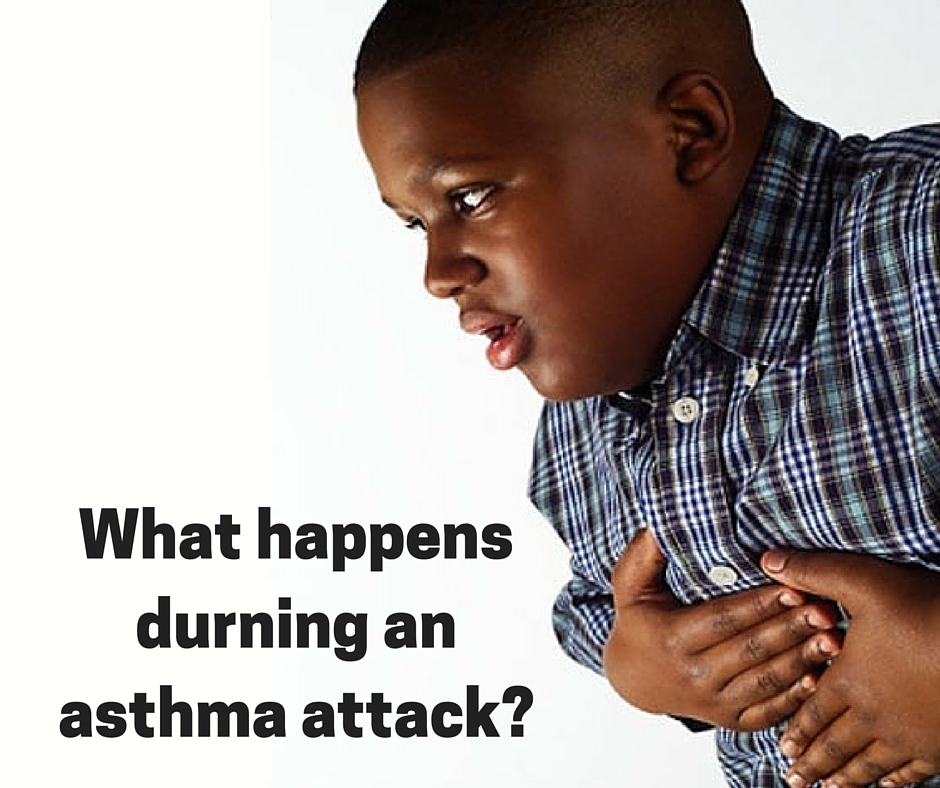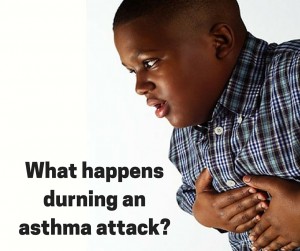
 Asthma is becoming increasingly common. One in 12 people had asthma 7 years ago. And that was up from 1 in 14 people 15 years ago. Although, just because a person has asthma, doesn’t necessarily mean they will have an attack. Fortunately, it can be managed via medications and avoiding whatever allergens or triggers cause the attacks.
Asthma is becoming increasingly common. One in 12 people had asthma 7 years ago. And that was up from 1 in 14 people 15 years ago. Although, just because a person has asthma, doesn’t necessarily mean they will have an attack. Fortunately, it can be managed via medications and avoiding whatever allergens or triggers cause the attacks.
What happens during an asthma attack?
If a person has an over-reactive immune system, certain triggers can cause an asthma attack. During an asthma attack, the muscles in a person’s airways tighten (a bronchospasm), and cut off a person’s air supply. Additionally, thicker mucus than normal is produced in the airways, which makes it even more difficult to breathe. They may experience the following symptoms:
-
- Wheezing
-
- Difficulty breathing
-
- Coughing
-
- Shortness of breath
-
- Rapid Breathing
-
- Tight chest and neck muscles
-
- Difficulty speaking
-
- Feeling panicked or anxious
-
- Sweaty or pale face
- Blue lips
The good news is, most people don’t experience full-on, extreme attacks. Most asthma attacks are mild, and the airways open up fairly quickly after treatment. If you start to experience any of these symptoms, and haven’t been diagnosed with asthma (and therefore have no way to treat it) call 911. If you do have asthma medication, use it, and the attack continues to worsen, you should call 911 as well.
Left untreated, the asthma attack will continue. The lungs will eventually tighten up so much that you won’t even be able to wheeze. Some people may see the disappearance of wheezing as a good sign. It’s actually very dangerous, and is known as the “silent chest”. Blue lips indicate cyanosis – a decrease of oxygen in the blood. At this point, aggressive emergency medical treatment is required.
What triggers an asthma attack?
Caused by a sensitive immune system, asthma attacks have a variety of triggers:
-
- Pollen
-
- Mold
-
- Pets
-
- Dust mites
-
- Upper respiratory infections
-
- Exercise
-
- Smoke
-
- Cold, dry air
- GERD (Gastroesophageal reflux disease)
If you have asthma, make sure you’re very aware of what causes your asthma attacks and do your best to avoid them. And inform your friends, family, and coworkers so they know to keep those things away from you. It will also be helpful to have someone that knows what to do in the event of an asthma attack. They can bring you your medication, eliminate the trigger, and call 911 in the event of a severe attack.
If you’re having a minor asthma attack, come to the urgent care! Otherwise, the emergency room is the best place to go.
